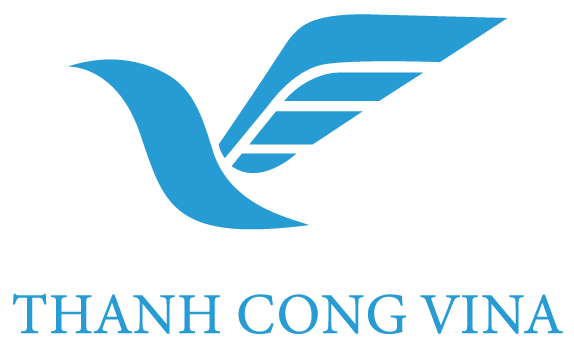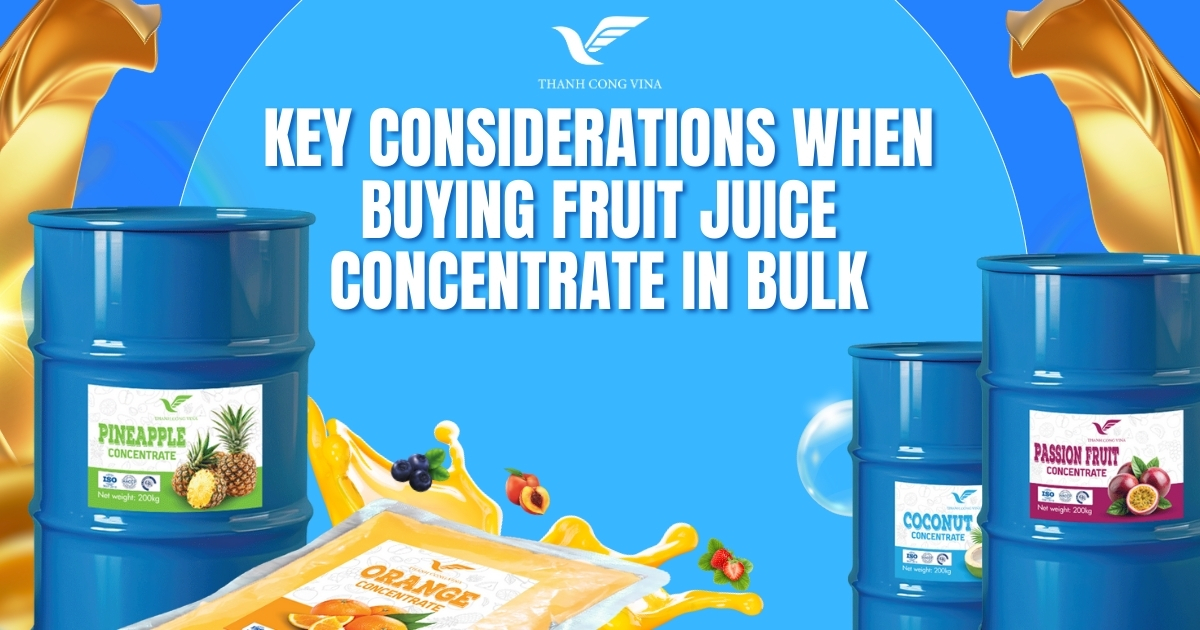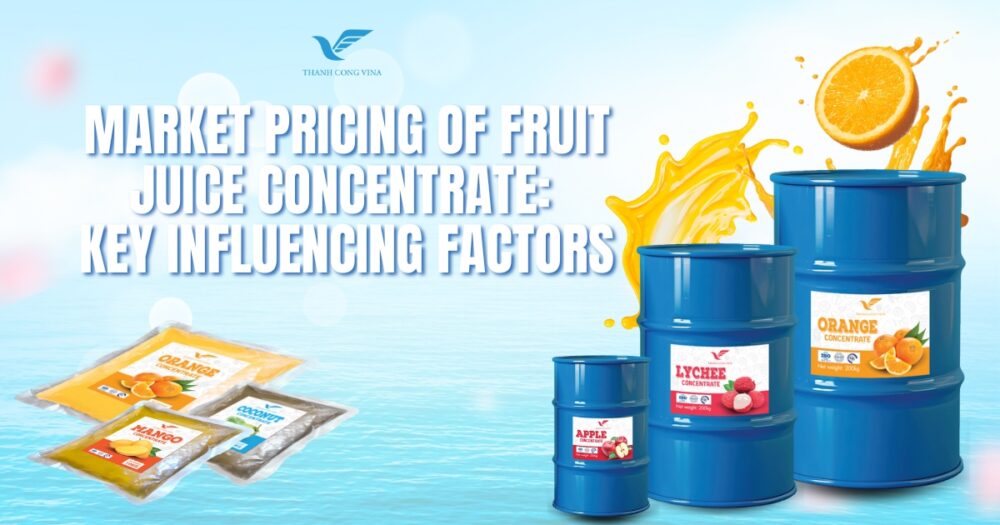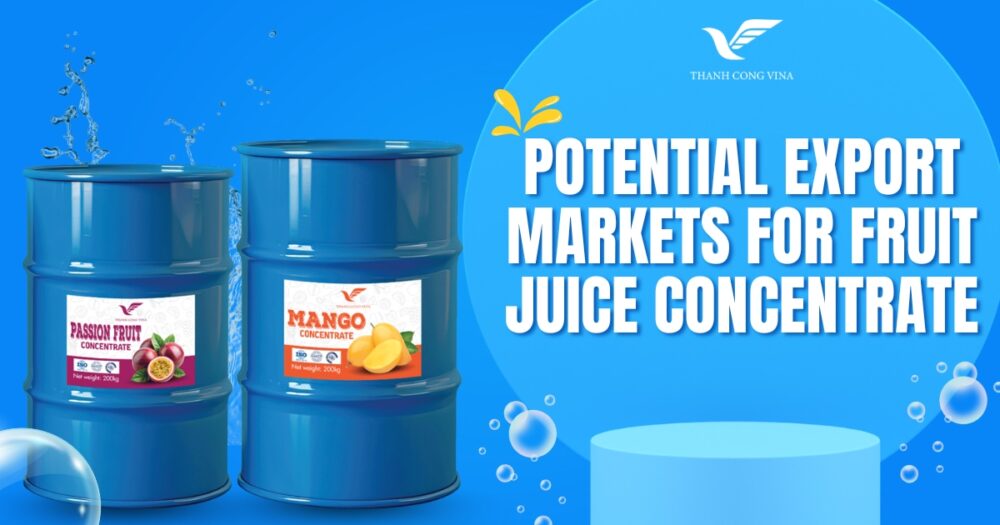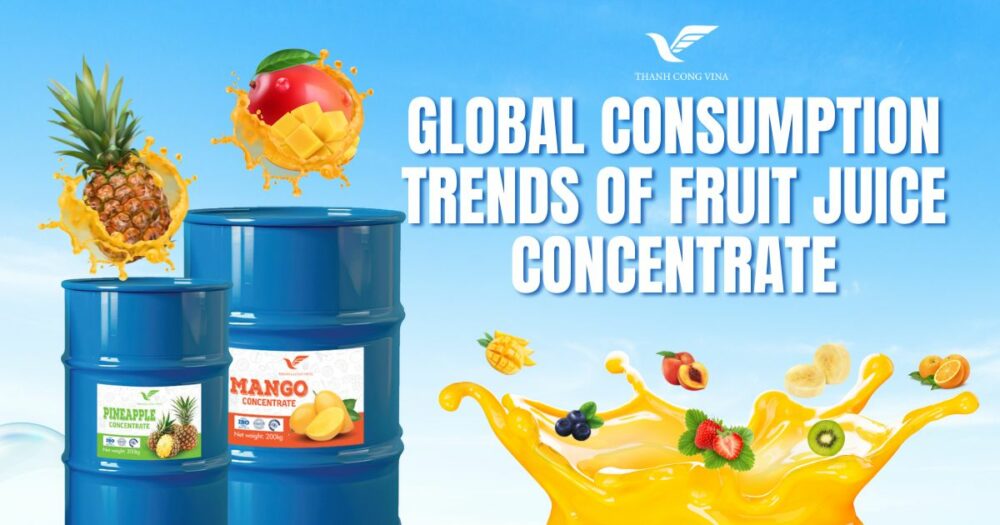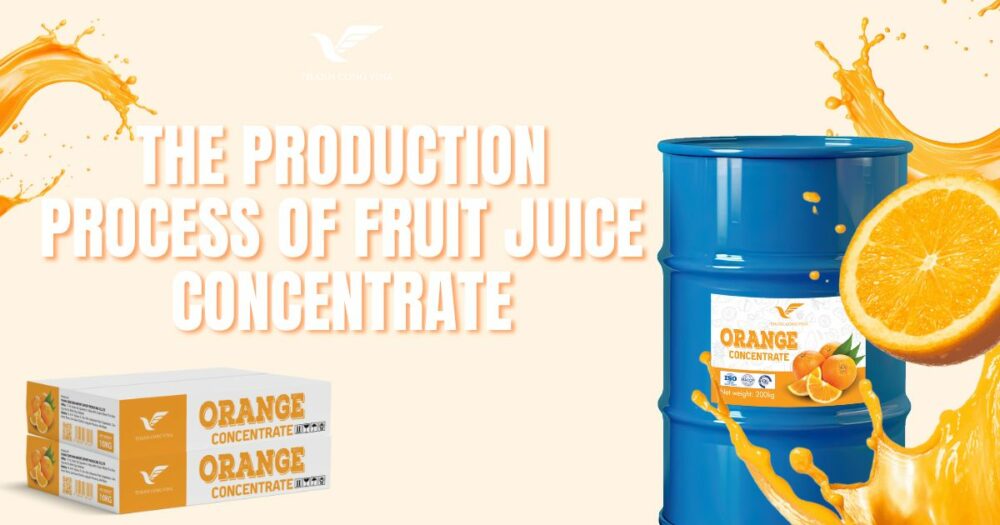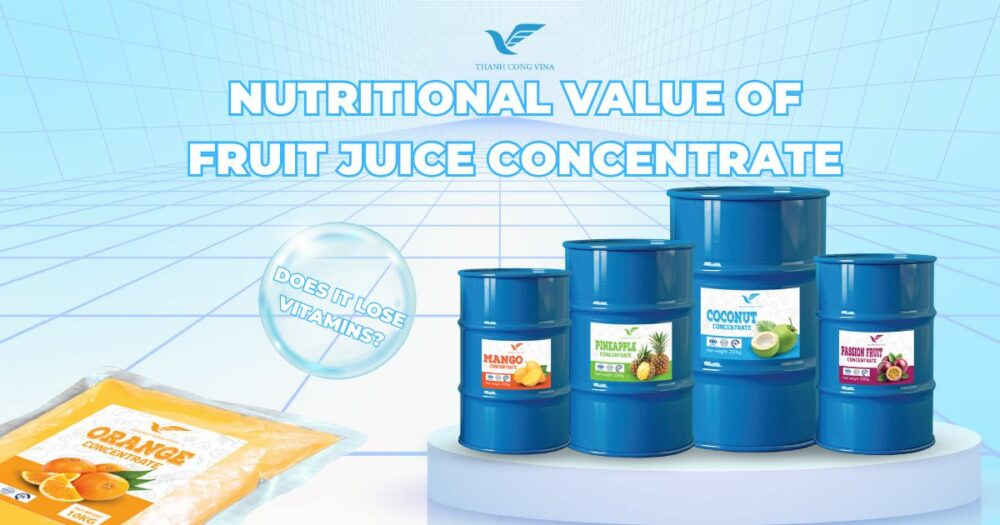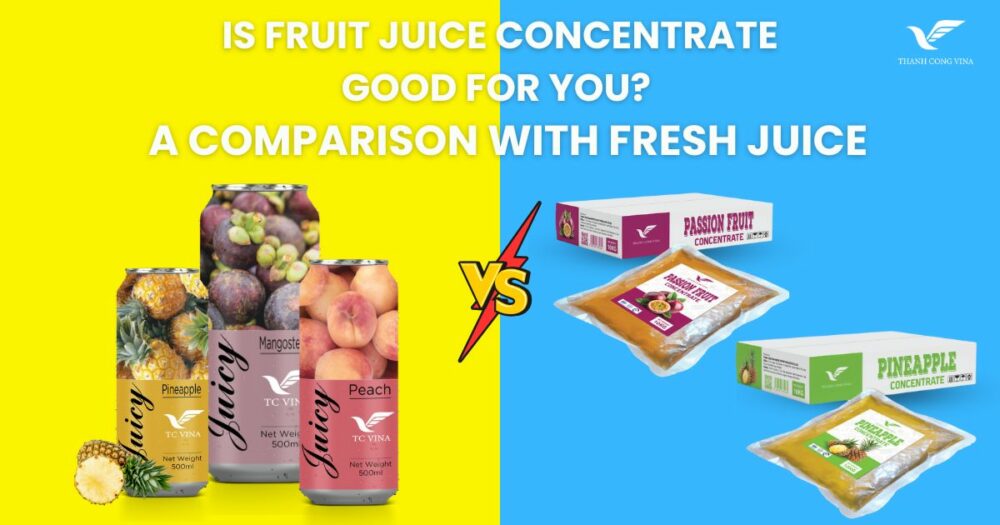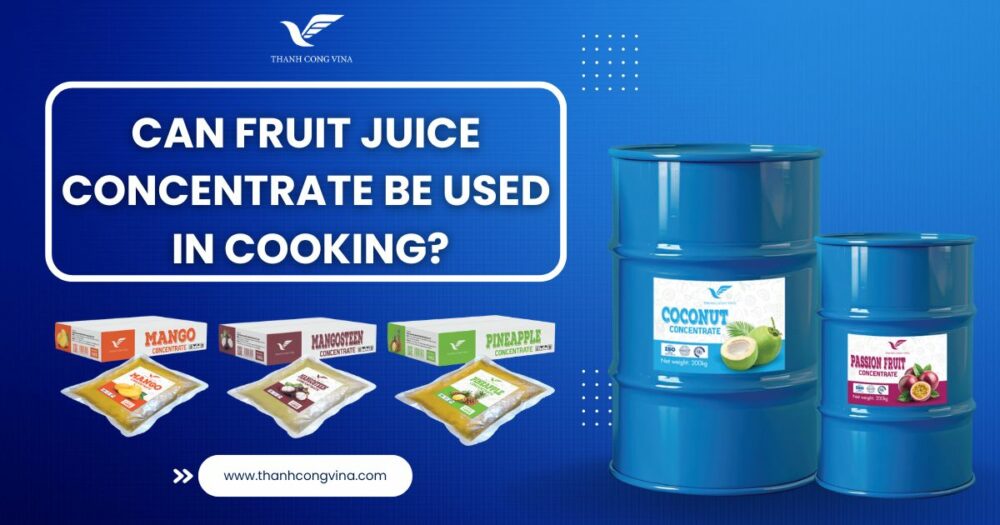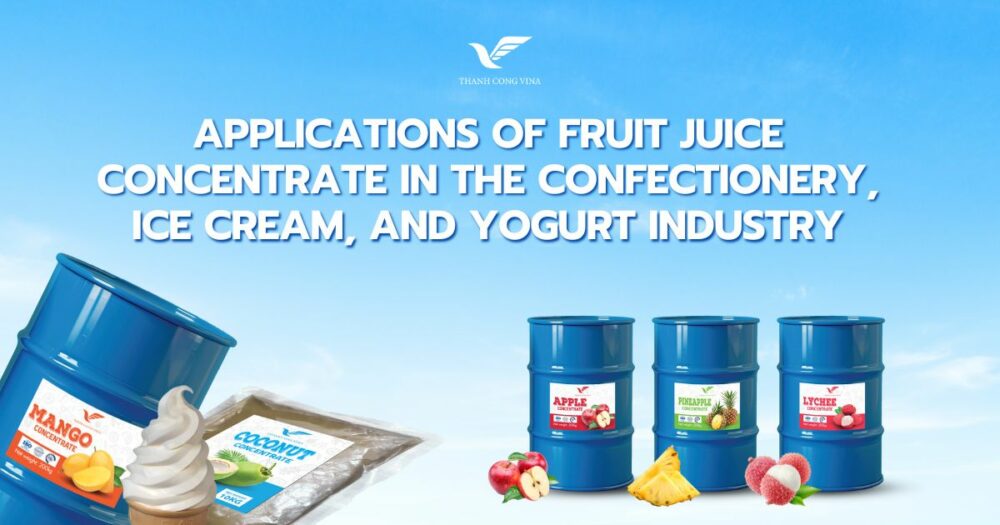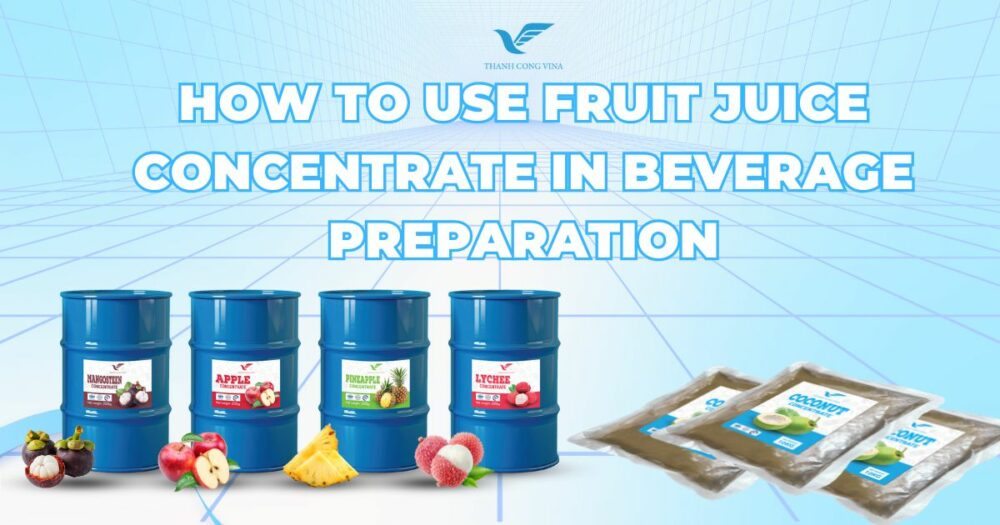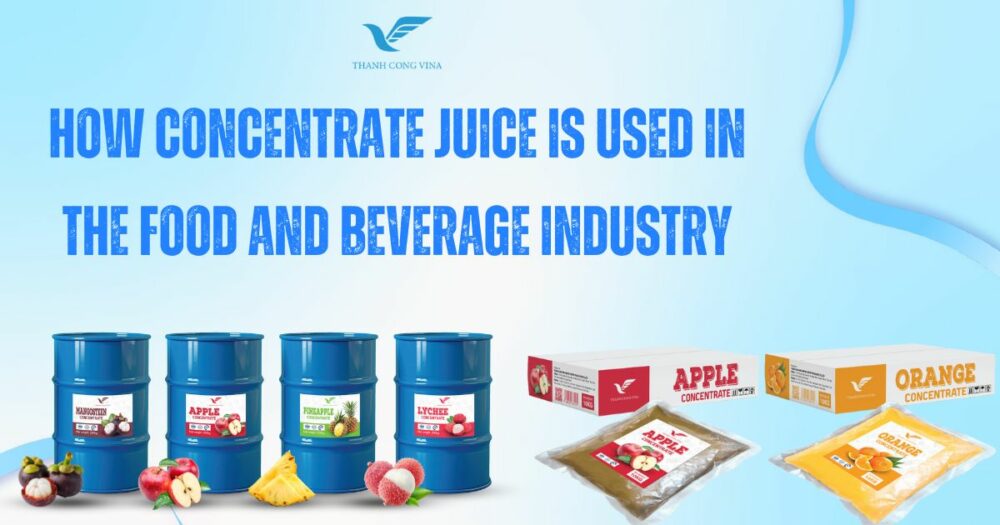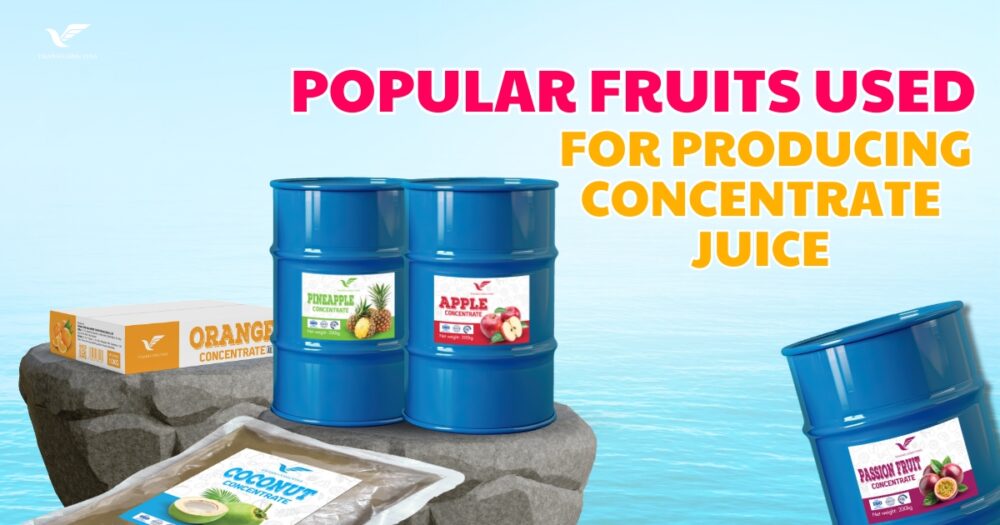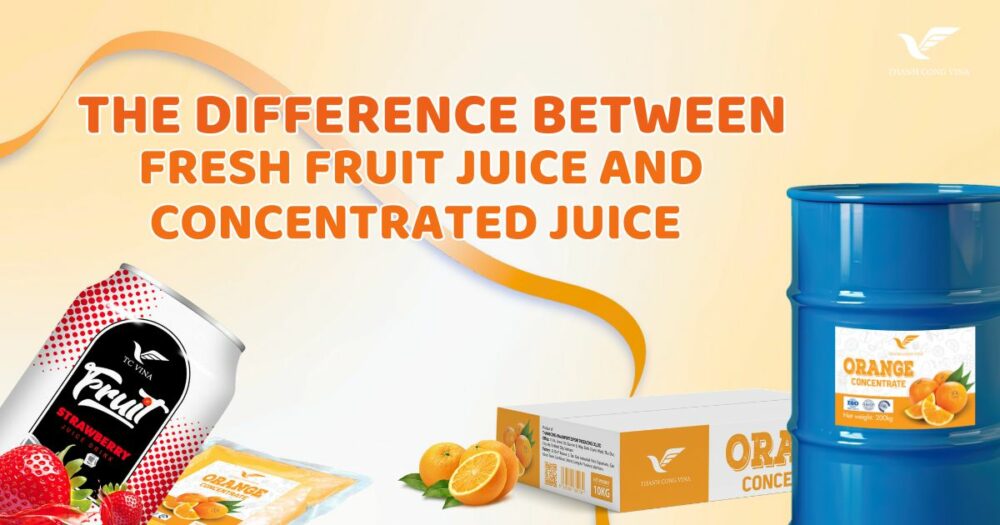In today’s globalized food and beverage industry, fruit juice concentrate has become a crucial ingredient for manufacturers, distributors, and private-label brands. Whether you’re producing bottled juices, dairy drinks, confectioneries, or baby food, buying fruit juice concentrate in bulk can offer numerous cost and efficiency advantages.
However, sourcing bulk quantities of fruit juice concentrate isn’t just about choosing the right fruit or price — it’s a multi-faceted decision that requires careful evaluation of quality, sourcing practices, certifications, supply chain reliability, and technical specifications.
At Thanh Cong Vina, we’ve partnered with hundreds of global buyers, helping them make informed decisions and build lasting success. In this guide, we’ll walk you through the top factors to consider when purchasing fruit juice concentrate in bulk, helping you minimize risks and maximize product value.
1. Understand the Type and Specification of the Concentrate
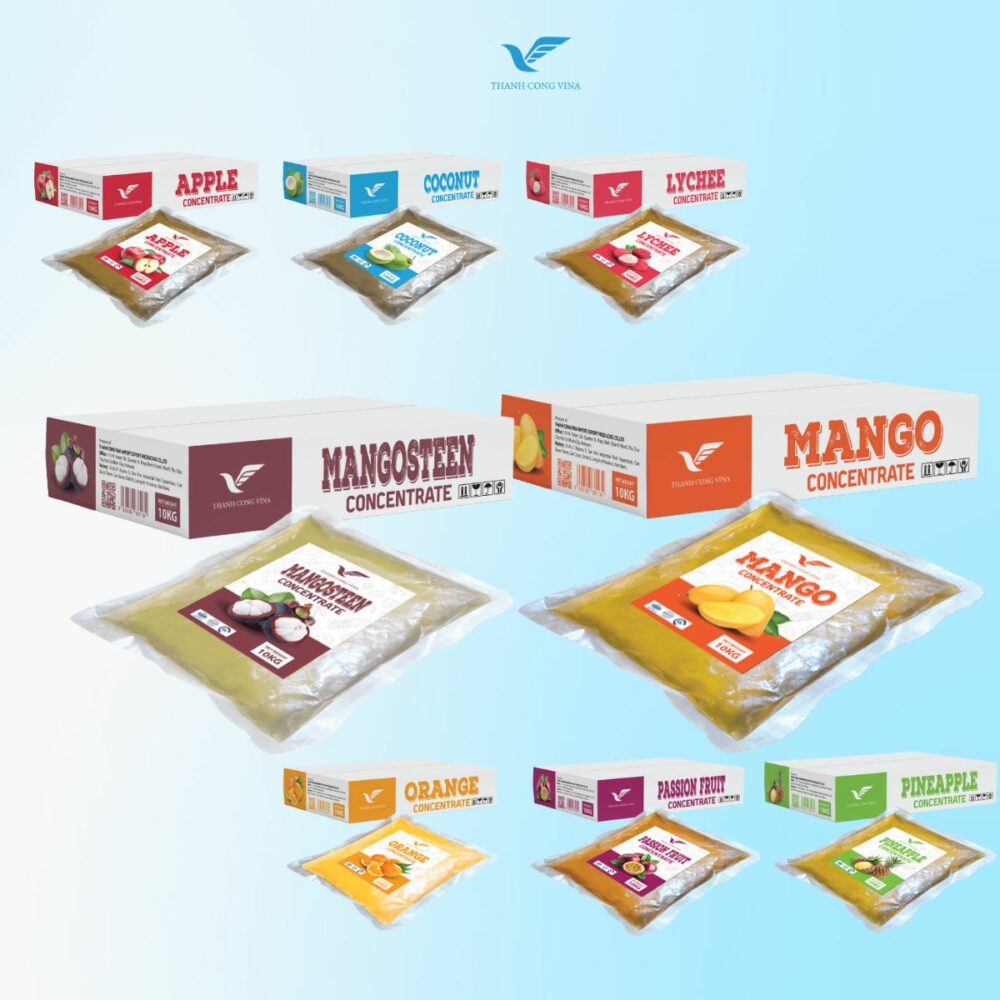
Understand the Type and Specification of the Fruit Juice Concentrate
Single-Fruit vs. Multi-Fruit Concentrates
Determine whether your product requires a single fruit base (e.g., 100% mango) or a blend (e.g., guava + passion fruit). This will influence sourcing and pricing.
Brix Level (Sweetness)
The Brix value represents the sugar content. Depending on your product’s intended taste profile or dilution ratio, you may require 14–65° Brix levels.
-
Beverage industry: typically uses 65° Brix
-
Baby food or desserts: may need lower levels
Pulp Content
Do you want clear juice, semi-pulpy, or with full-bodied texture? This affects mouthfeel and usage.
Acid Content and pH Level
Different fruits have different acidity levels. Some products require neutralization or blending to adjust taste and stability.
Color and Flavor Profile
Consistency matters. Choose a supplier who can provide uniform color, aroma, and flavor across batches.
Thanh Cong Vina Tip:
We offer fully customized fruit juice concentrate options — adjusting Brix, pulp, acidity, and packaging according to your technical and commercial needs.
2. Evaluate the Quality Standards and Certifications
A. Food Safety Certifications
Reputable suppliers should meet international food safety standards, such as:
-
HACCP
-
ISO 22000
-
FSSC
-
FDA (for the U.S. market)
-
Halal / Kosher depending on the target region
B. Organic Certification (if applicable)
If your brand is organic or clean-label, check for EU Organic, USDA Organic, or JAS certifications.
C. Laboratory Testing
Ask for:
-
Microbiological reports
-
Pesticide residue analysis
-
Heavy metal tests
Thanh Cong Vina Commitment:
Our production is certified by HACCP, ISO, and Global GAP. We also provide batch-level traceability, third-party test results, and support for organic certification when needed.
3. Know the Source of Raw Materials
Geographic Origin
The quality of fruit depends heavily on soil, climate, and harvest timing. Choose regions known for tropical fruit richness — like Vietnam for mango, guava, passion fruit, and lychee.
Harvest Seasonality
Plan ahead: some fruits are only harvested once or twice a year. Secure contracts during peak season for best quality and pricing.
Sustainable Farming Practices
Environmentally conscious consumers care about traceability, biodiversity, and eco-friendly farming.
Supplier’s Relationship with Farmers
Long-term partnerships between processors and farmers ensure raw material consistency, fair trade, and traceability.
Thanh Cong Vina’s Edge:
We partner directly with Vietnamese farms to source fresh, traceable, and sustainably grown fruits — ensuring long-term supply security and product consistency.
4. Understand Your End-Product Requirements
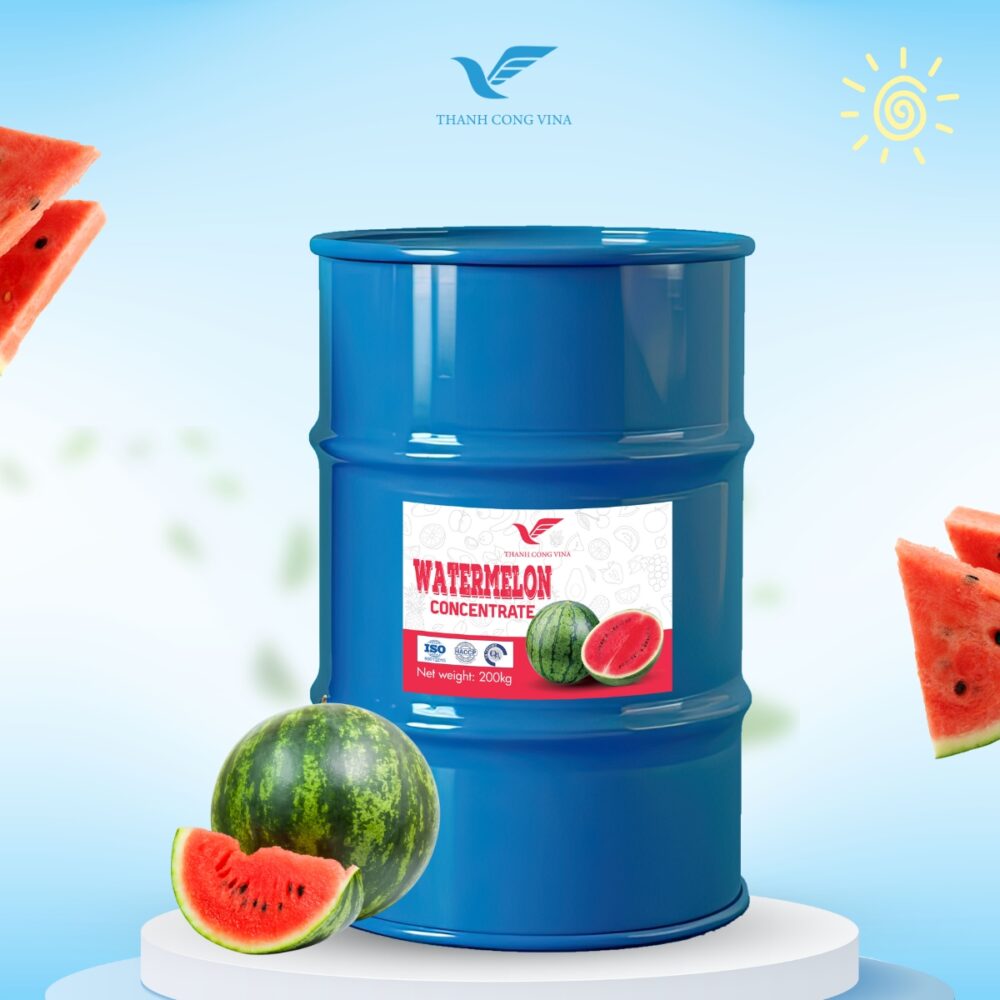
Understand Your End-Product Requirements
Ask yourself:
-
Is the concentrate going into a RTD beverage, sauce, ice cream, or dessert?
-
Will the product be diluted or used as-is?
-
Are there legal limits on sugar, acid, or color in your target market?
-
Is your product labeled as 100% juice, juice drink, or nectar?
Knowing your product’s category helps you choose the right type and specification of fruit juice concentrate.
5. Consider Packaging and Logistics
A. Packaging Options
Common industrial bulk packaging includes:
-
Aseptic drums (200–250kg)
-
Bag-in-box (5L – 25L)
-
IBC totes (1000L)
-
Frozen packs (pallets of 10–20kg blocks)
Aseptic packaging allows ambient shipping, while frozen ensures extended preservation.
B. Shelf Life
Typically, fruit juice concentrate has a 12–24 month shelf life, depending on packaging, preservatives (if any), and storage conditions.
C. Storage & Transport
Know the temperature and storage requirements:
-
Aseptic: room temperature
-
Frozen: below -18°C
D. Labeling & Customs
Ensure the packaging includes clear labels with:
-
Brix
-
Country of origin
-
Lot number
-
Production/expiry date
-
Import certification codes
Thanh Cong Vina offers flexible packaging for B2B and B2C use — including OEM/private label support, full export documentation, and guidance on shipping methods.
6. Compare Pricing and Payment Terms
While cost is important, lowest price ≠ best value.
Factors affecting price:
-
Fruit type & yield (e.g., mango is costlier than pineapple)
-
Brix level (higher sugar = more raw fruit = higher cost)
-
Organic or conventional
-
Seasonality (prices rise off-season)
-
Certifications and customization
Common Payment Terms:
-
TT (Telegraphic Transfer)
-
L/C (Letter of Credit)
-
Flexible credit for long-term buyers
Thanh Cong Vina offers competitive pricing based on transparent quotations, volume discounts, and long-term contract advantages.
7. Assess Supplier Reliability and Communication
Bulk sourcing requires long-term trust.
Evaluate:
-
Responsiveness and technical support
-
Willingness to provide documentation (CoA, MSDS, Origin Certificate)
-
Ability to deliver samples for lab testing
-
Clear communication and English proficiency
-
Logistics and export experience
A poor supplier can cause production delays, quality issues, and even product recalls.
Thanh Cong Vina’s Promise:
We serve clients across Japan, Korea, India, and Europe — and understand each market’s unique compliance needs.
8. Check for Flexibility and Scalability
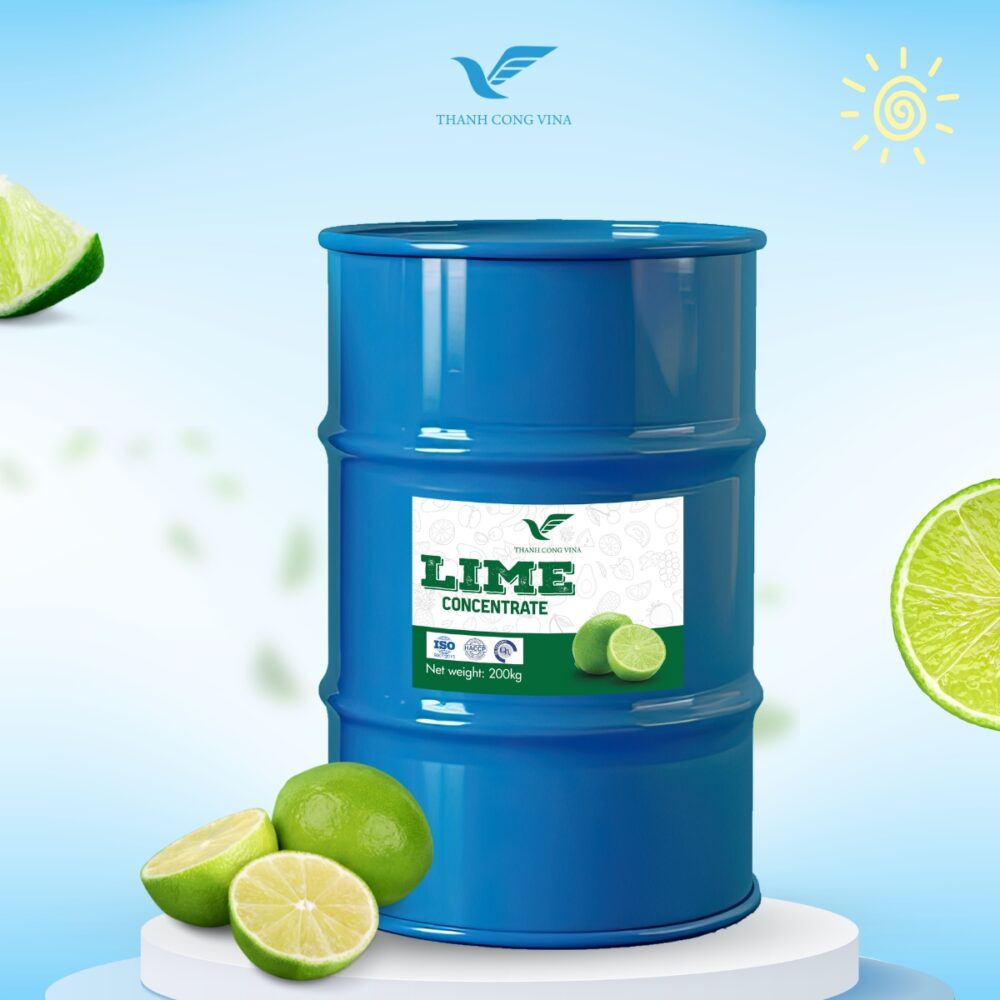
Check for Flexibility and Scalability
Questions to Ask:
-
Can the supplier scale production if demand increases?
-
Do they have minimum order quantities (MOQs) that fit your business?
-
Can they create custom blends or formulas?
-
Do they support pilot production or R&D samples?
Thanh Cong Vina supports both small trial batches and full-scale production, making it easier for startups and global brands alike.
9. Review Terms of Trade and Risk Management
A. Incoterms
Understand shipping terms like:
-
FOB – Free on Board
-
CIF – Cost, Insurance & Freight
-
EXW – Ex Works
Each term affects your shipping responsibility and cost.
B. Insurance & Delivery Timelines
Ensure the delivery timeline fits your production cycle. Check if insurance is included in the quote.
C. Contracts and Dispute Resolution
Have a clear written contract that outlines:
-
Product specs and acceptance criteria
-
Lead times
-
Payment and cancellation terms
-
Dispute resolution process
Thanh Cong Vina provides transparent agreements and export experience in over 10 countries.
10. Taste, Test, and Approve
Before finalizing a bulk order:
-
Request a sample for internal lab analysis and taste test
-
Conduct shelf-life and product integration tests
-
Get feedback from your R&D or quality team
-
Review customer panel preferences if you’re a B2C brand
Thanh Cong Vina offers free samples and technical support for product integration testing.
See more>>> https://thanhcongvina.com/global-consumption-trends-of-fruit-juice-concentrate/
Conclusion: A Strategic Approach to Sourcing Fruit Juice Concentrate
Purchasing fruit juice concentrate in bulk isn’t just a transactional process — it’s a strategic partnership. From product formulation to branding and supply chain optimization, your choice of supplier will shape your brand’s success.
At Thanh Cong Vina, we bring 15+ years of expertise in sourcing, processing, and exporting fruit juice concentrates. Whether you’re a large-scale manufacturer or a boutique beverage brand, we offer:
-
Custom specifications (Brix, pulp, acidity)
-
Global certifications and food safety compliance
-
Flexible packaging and contract terms
-
Sustainable sourcing from Vietnam’s finest fruit regions
-
Dedicated export and R&D support
